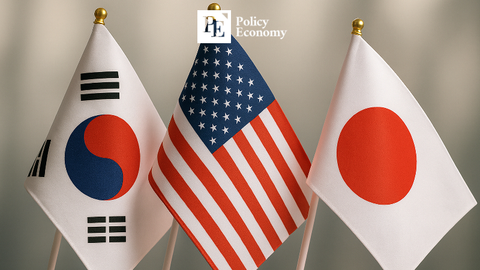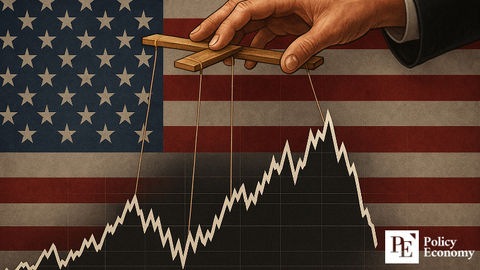A Wave of Anti-“Woke” Backlash in the U.S. Pushes Brands Back to Core Product Value
Input
Changed
Fatigue Over Diversity Messaging Spreads The Limits of “Woke Capitalism” Exposed Diversity Experiments in Media Fall Flat

Cracker Barrel, a Tennessee-based restaurant chain, marked its 50th anniversary by attempting to revamp its logo, long seen as overly traditional. But when the redesign drew criticism for undermining the brand’s iconic imagery, the company scrapped the plan altogether. The reversal reflects growing backlash against race, gender, and identity politics in marketing, as companies prioritize core consumer reactions and reputational risk over symbolic gestures of diversity.
Backlash Against Aggressive Framing
On August 26, Cracker Barrel announced, “The new logo is gone, the Old Timer is back,” abandoning its anniversary rebranding just one week after it was unveiled. The “Old Timer”—a man in work clothes leaning against a wooden barrel while seated in a chair—had been part of the logo for decades. Management had considered removing the figure after some criticized it as “too traditional,” but ultimately faced stronger pushback and canceled the plan.
The case reflects the broader anti-woke trend that has taken hold in U.S. society over the past two to three years. Democrats actively invoked the concept in the 2016 and 2020 elections, but during last year’s campaign even Vice President Kamala Harris largely avoided the term, wary of its baggage. Once linked to progressive causes, “woke” has become politically toxic, increasingly seen as an aggressive framework dividing the world into victims and oppressors.
This shift has led corporations, universities, and local governments to scale back or eliminate diversity initiatives. Retail giant Target slashed its LGBTQ “Pride Collection.” Bud Light, after partnering with a transgender influencer, lost market share amid boycotts and sought to rehabilitate its image with new campaigns. Universities such as the University of Texas and MIT have cut back diversity offices and programs, scrambling to contain backlash against perceived “overreach.” Once celebrated for advancing social values, woke culture is now viewed across business, politics, and academia as a source of fatigue.
The word itself has become a political black hole. Originally a rallying cry in Black communities for civil rights, “woke” entered the mainstream during the 2020 Black Lives Matter protests. But conservatives quickly weaponized it as a pejorative, framing all progressive agendas as intrusive. Fox News, for example, portrayed critical race theory—the intellectual framework behind much of woke discourse—as a threat infiltrating schools and workplaces, and fueled a narrative of “reverse discrimination” against white Americans.
This framing became a potent political tool. A Wall Street Journal poll found that 59 percent of Republicans believe whites face discrimination, compared with only 21 percent of Democrats. For many, “everything is woke’s fault” became a convenient way to channel grievances. As a result, the term has morphed into a symbolic code applied broadly across social and political conflicts.

Reputation Damaged by Excessive “Diversity” Messaging
Corporations once embraced “woke capitalism.” When the U.S. Supreme Court overturned federal protections for abortion in 2022, companies like Apple and Amazon pledged to cover travel costs for employees seeking the procedure. Nike launched sweeping campaigns against racial discrimination amid BLM protests. Levi’s, however, faced criticism from a former executive who accused leadership of “virtue signaling for social justice while silencing dissenting views.”
These moves soon exposed contradictions. Nike, for instance, was one of the few S&P 100 companies that refused to submit employee diversity data (EEO-1 forms) to the Equal Employment Opportunity Commission, despite 71 percent of peers complying. When shareholders later voted to require disclosure, Nike even petitioned the SEC to nullify the resolution. Consumers accused the company of hypocrisy, fueling skepticism across industries. Advertising, sponsorship, hiring, and supply chains all came under new scrutiny as companies recalculated the costs, benefits, and risks of woke capitalism.
Under tighter scrutiny, corporate responses shifted toward pragmatism. Firms began publishing diversity, equity, and inclusion (DEI) data regularly, opening themselves to external evaluation. Marketing campaigns emphasized core product benefits such as value, price, and utility, minimizing the room for ideological debate. Companies developed joint legal and PR review processes to preempt shareholder proposals, regulatory risks, or lawsuits. They also adjusted advertising timing and exposure to avoid cascading boycotts and counter-boycotts.
For firms that once loudly championed “wokeness,” the cross-pressures of scrutiny and backlash have only grown heavier. Demands for disclosure, shareholder proposals, and brand-safety checks have lengthened decision timelines and inflated budgets. Overblown diversity slogans have dragged companies into debates unrelated to product value, adding costs and fatigue. In the end, corporations have shifted their weight from declarations to metrics and execution.

Woke Capitalism Backfires at the Box Office
The content industry has been one of the clearest arenas for the backlash. Disney’s live-action Snow White, released in March with a production budget of $310 million, cast Latina actress Rachel Zegler in the lead role. Critics argued the choice strayed from the character’s original identity, fueling backlash that dominated promotion. The controversy ultimately forced Disney to cancel several premieres and red-carpet events, highlighting how identity debates can derail marketing strategies.
Disney had already faced similar turmoil with its 2023 live-action Little Mermaid. Casting African American actress Halle Bailey as Ariel sparked online campaigns under the hashtag “#NotMyAriel.” Fans argued that elements from hair texture to styling strayed too far from the original. Bailey defended her portrayal, noting that hair is central to cultural identity, but the film fell far short of its $700 million break-even mark, ending its theatrical run in the red.
Streaming platforms have not been immune. Netflix’s docuseries Queen Cleopatra drew accusations of historical distortion after casting Black actress Adele James as the Egyptian queen and marketing the project—executive produced by Jada Pinkett Smith—as a story of a “Black queen.” Historians countered that sub-Saharan civilizations had no connection to ancient Egypt. An online petition on Change.org demanded sanctions against Netflix for “distorting Egypt’s heritage.”






















Comment